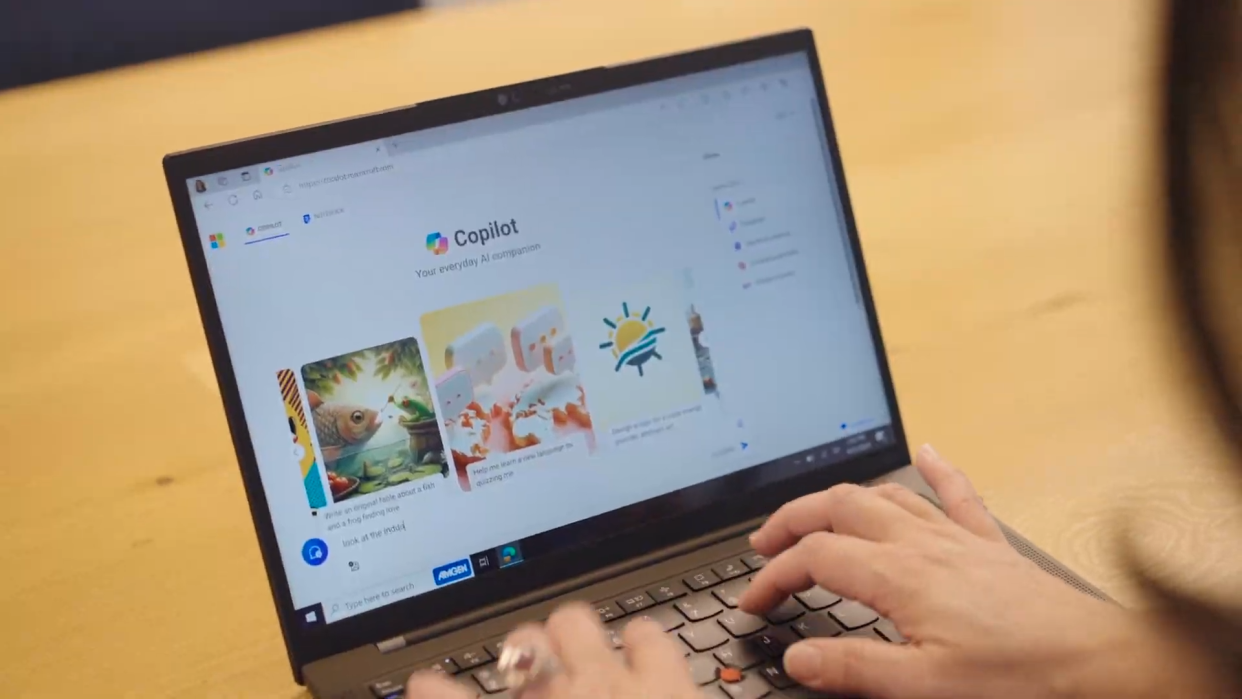New Surface Pro and Surface Laptops may finally match MacBooks in one key area

When Microsoft unveiled its new Surface Pro and Surface Laptop devices this week, Windows users could stand a little taller. It seems that MacBooks might finally meet their match.
Powered by Qualcomm's Snapdragon X Elite chip running on Arm's architecture, the debuts are a significant step forward from the Surface devices that debuted in March (which ran on Intel Core Ultra processors).
Microsoft is marketing the new Surface Pro and Surface Laptops as Copilot+ PCs, and the company cites the UL Procyon AI Computer Vision Benchmark to assert that Copilot+ PCs "unlock industry-leading AI acceleration with up to 2x faster NPU performance than MacBook Air and MacBook Pro."
Historically, Windows computers have never performed as well as MacBooks using Arm architecture, which essentially is how the hardware works when an instruction is given. "It is a contract between the hardware and the software, defining how they interact with one another," as the Cambridge, UK-based technology firm puts it.
Windows users have reason to be hopeful, though. We're entering an era where Qualcomm Snapdragon X Elite chips running on Arm architecture may finally match Apple in the most important arena: that of performance. Microsoft claims that the compatibility between Intel's x86 architecture and Arm architecture apps has improved significantly.
When Apple switched from Intel chips to its proprietary silicon chips, it used Rosetta 2, an app translation technology, to help Arm-based Macs run apps built for Intel-based Macs. Meanwhile, Microsoft's app translation technology tried to bridge the gap between x86 and Arm architectures, but it was never as good as Apple's Rosetta 2.
Enter Prism, Microsoft's updated app translation technology. The hope is that it could equal what Rosetta 2 does for MacBooks and emulate x86 apps with minimal issues on Arm-based Windows computers.
What is Microsoft Prism, and why does it matter?
Arm architecture utilizes less power while delivering better performance, so a shift from x86 to Arm is the inevitable path for Windows PCs.
There are various reasons Microsoft has struggled to adopt an app translation technology that would make the transition to Arm easier, but that's all moot now.

With Microsoft's "powerful new Prism emulation engine," fantastic, Mac-rivaling Arm-based Windows laptops are finally on the way.
According to Microsoft, Prism "delivers a 2x performance boost compared to Surface Pro 9 with 5G," and it'll roll out with the upcoming Windows 11 24H2 update.
The company also says (via Ars Technica) that translated x86 apps on existing Arm-based architecture may run between 10-20 percent faster with the 24H2 update. This means you won't necessarily need to shell out thousands on a new Snapdragon X Elite-powered PC. If you're using an Arm-based Windows PC with the 24H2 update, you'll see some of the performance and efficiency benefits from Prism.
Prism eventually won't have many x86-based apps to make compatible with Arm architecture, as many popular apps and services have already started creating Arm-native versions. These Arm-based versions will, in theory, eventually replace x86 versions, which is certainly music to Microsoft's ears in its quest to push ahead with Windows on Arm.
Adobe currently has a few Arm-native apps, including Photoshop (version 22.4 and later) and Lightroom (version 4.1 and later), and the company is "actively working to build apps that run on Windows computers with ARM architecture-based processors."
As noted in our feature on what it's like to live with an Arm-based Windows PC in 2023, Mozilla Firefox, Zoom, VLC, and Spotify have already been updated for Windows on Arm.
Even Google designed an Arm-native Chrome browser version earlier this year, setting up Arm-based Windows PCs for success in their tight competition against Apple's Arm-based MacBooks.
Make sure you check out Laptop Mag's live coverage of Microsoft Build 2024 to see more exciting announcements about AI-powered, Arm-based Windows laptops.

